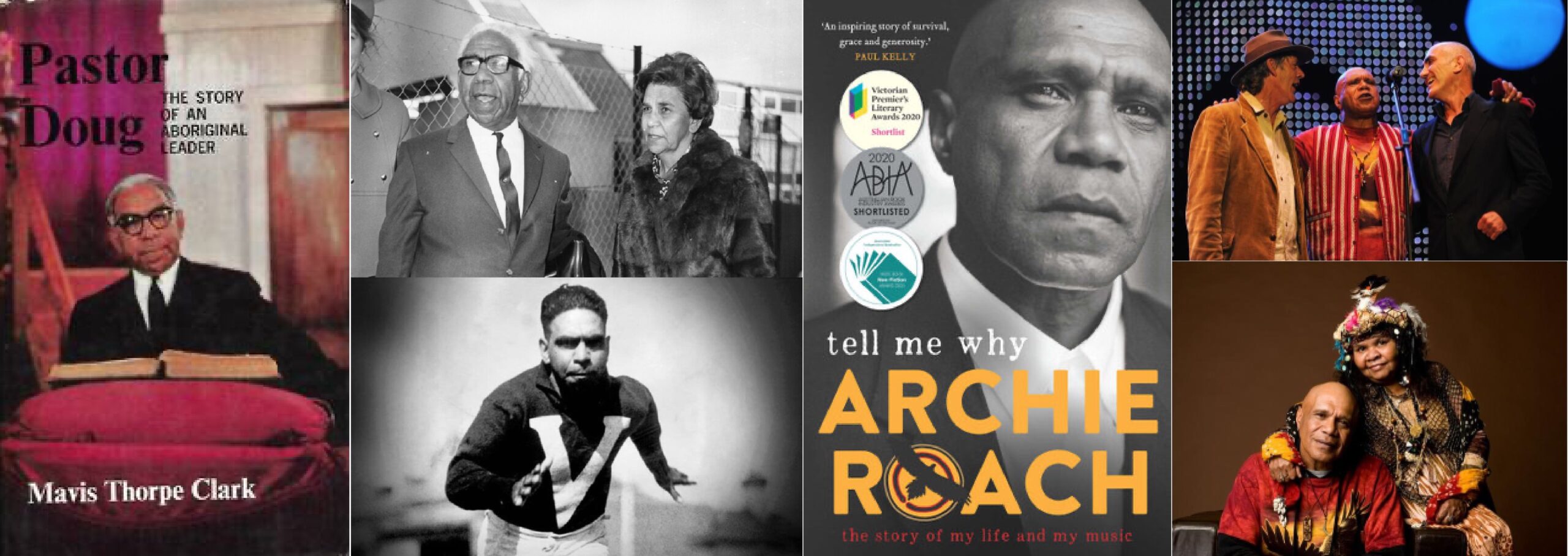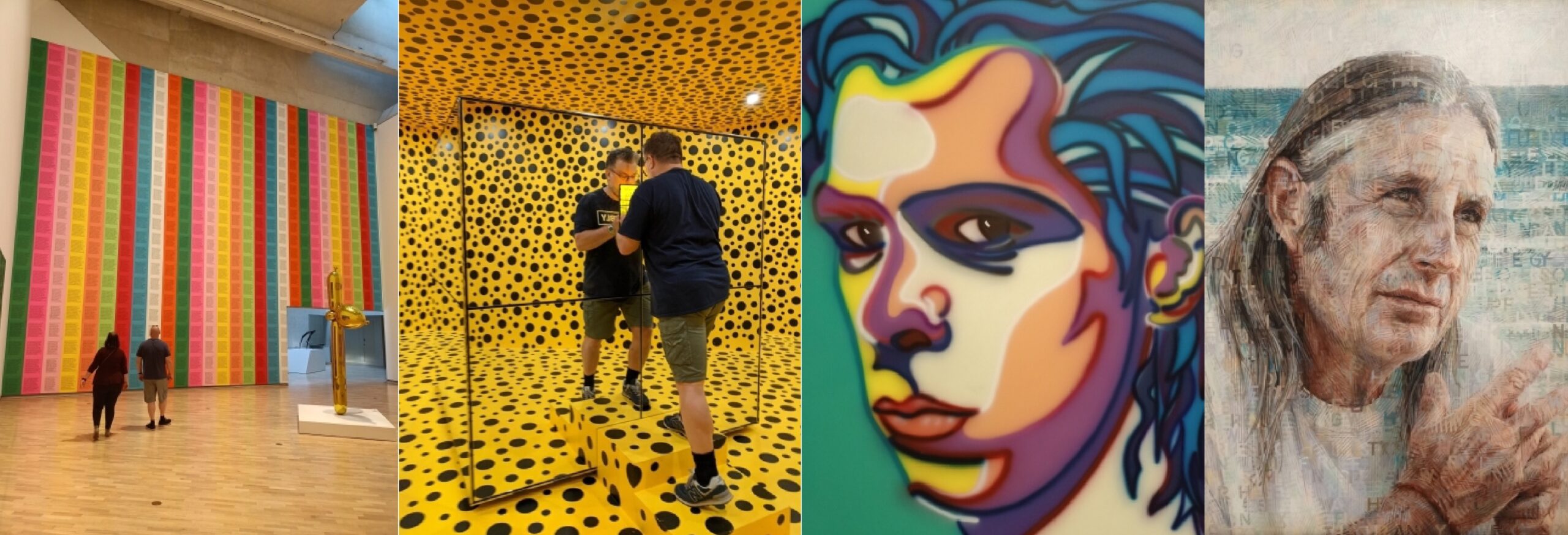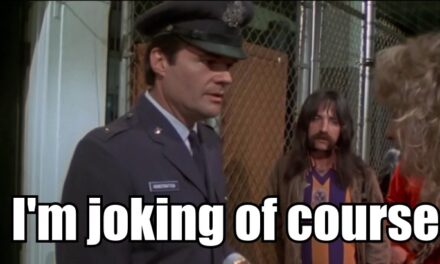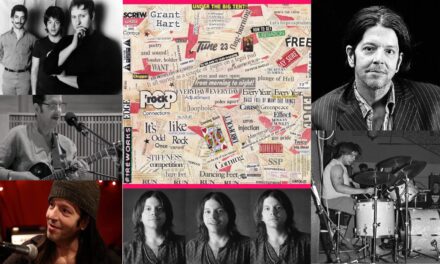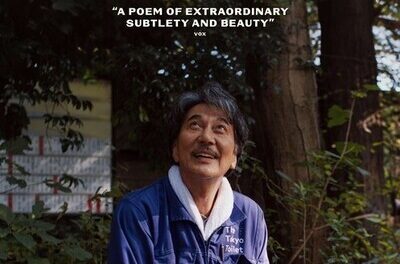In a sense, both Sir Doug Nicholls OBE, MBE and Archie Roach AM, are poles apart in their journeys and yet their contributions to Australian and more-so indigenous culture are gigantic.
My daughters gave me this book , Pastor Doug, for my birthday last year (thanks girls xx). It’s an antique now, first published in 1956 and this revised edition is 1972. Sir Doug was born in 1906 at Cumeroogunga Station on the Murray River. He was 8 YO when his 16 YO sister Hilda, was removed from the family to be trained as a servant. The police arrived knowing the men would be working cutting timber away from the camp. Doug witnessed young girls trying to escape by jumping into the Murray whilst others were forced into cars with mothers wailing and threatening the police with any weapon they could lay their hands on. The memories of these police visits haunted Doug and his friends to the point that anytime a car pulled up, they would hide under their beds.
At the age of 14 Doug left home and joined the post-WW1 unskilled workforce doing just about anything to survive. Whilst working at a sheep station, a shearer challenged the 5 foot 2 inch teenager Nicholls to a boxing fight with the winner to hand over his week’s pay. Doug finished him off in 6 x rounds. It would be the start of a long and illustrious sporting career covering boxing, athletics and football.
Doug starred in professional athletics and eventually football in the VFA with Northcote. He played there for 5 x years and was described by the VFA as brilliant, polished, clean, skilful, accurate, spectacular and scrupulously fair. After Northcote, Doug astonishingly took off with the infamous Jimmy Sharman’s Boxing Troupe for a year, fighting random civilians for money all over the country. He was hugely popular, simply because every opponent underestimated the 5ft 2 inch pocket rocket!
It was football that lured Doug back to Melbourne where he was picked up by VFL team Fitzroy, where he stayed for 6 x years and represented Victoria on 4 x occasions. It was around this time, 1932 that Doug, a shy non-drinker and non-smoker found the Church of Christ in Fitzroy. It’s here where he found the strength to deal with the extreme racism he endured on and off the football field. Being black, very talented and short, he had all the hallmarks of someone ready to be vilified and Doug withstood it all. Even his team mates stirred him up but within a couple of years when Doug became a Pastor, they were turning up to church to hear him speak.
Doug devoted the next 50 years of his life to community service. He formed the Australian Aborigine’s League to fight for recognition of Aborigines as human beings and for full rights of citizenship. The book details the shameful treatment of Aborigines by the white governments and press. This is the battlefield that Doug chose to fight, to get his people to push through the crushing inferiority feelings they possessed.
Doug enlisted in the army to serve in WW2 but after a year he was called back to Fitzroy by the Victoria Police to assist with the growing hordes of Aboriginal men moving to factory jobs in the city. The police felt they were losing control of the drinking and brawls and they needed Doug to settle things down. As Fitzroy became a haven for the disenfranchised, Doug leased an old church in Gore St, Fitzroy. It became the Church of Christ Aborigines Mission with Doug as Missioner.
Doug married Gladys in 1942, a widow to his brother Dowie, who was killed in a car accident, and took on their 3 x children. They were married for 39 years and had another 3 x children. Gladys took bible classes for the children and often they would hit the road and preach in small towns as they travelled interstate. Incredibly, such was the level of racism in Australia, that if an Aborigine wanted to stay in a hotel they had to have an “exemption certificate”, otherwise known to the white faithful as the “dog licence”. Charming.
Doug’s achievements are quite frankly breathtaking when you think about how hard it was to get around and to communicate. No emails or jumping on a plane. Doug was in South Australia one minute fighting for the rights of those tribes affected by the British nuclear testing, lobbying governments, Prime Ministers and mining companies over land rights in Vic, NT and North Qld then the next minute educating whites in universities, mother’s clubs farmers groups and schools. Doug just wanted the story of the First Australians heard and for the white population to understand the atrocious conditions so many were living in at that time.
The author Mavis Thorpe Clark has written ”Pastor Doug” “scholarly” like she’s a history teacher at school. It’s a narrative style more accustomed to sitting up straight and behaving one’s self, or you’ll get a whack on the knuckles with a ruler! Nonetheless it’s very thorough and an excellent insight into a man who crammed a hell of a lot into his 81 years. Sir Doug was the first Aboriginal man to be knighted and was the first Aboriginal Governor of a State, being SA. It’s great that the AFL Indigenous Round is named after him and I know the indigenous AFL players are well versed in Sir Doug’s life. He is a truly great Australian.
This is a lovely little tribute to Sir Doug from the AFL;
After reading “Tell me why” by Archie Roach AM, my throat felt dry and I was fanging for a smoke, even though I haven’t touched a drink or smoke for nearly 14 years! It’s a shame Archie missed Sir Doug’s residency in Fitzroy because it may have helped him avoid a lifetime of gut wrenching abuse.
Archie was removed from his parents at the of 2 and never saw his parents again. It’s hard to fathom quite what that would be like especially when you’re a parent of your own. He was placed in foster care in Melbourne with loving white parents and did well at school but there was something that just kept gnawing at him. Upon receiving a letter from a sister that he didn’t know, he left school at 14 and worked manual jobs before the itch became a scratch and he packed his clothes and guitar, hitchhiking to Shepparton where he had friends.
From there he hitched to Sydney where his sister mentioned he had other family. In a park near the CBD he found some other Aborigines who made him welcome and gave him a drink of fortified wine. It would be the start of Archie’s love affair with booze. Despite the drinking, Archie describes beautifully the solace and sense of spirit in the communities he met living rough in the parks. The description of the drinking sessions brought back some bad memories for me growing up in Kwinana WA, when the fortified wines and mentholated spirits took charge. The fights and the deranged behaviour that emanate from that type of booze aren’t dissimilar to the effects of meth amphetamine these days. Archie has nailed it in the book.
The meeting with his life partner Ruby Hunter saved his life despite Ruby having her own addiction issues. An amazing musician in her own right she was a rock for Archie up until her death in 2010 and this book is as much a tribute to her compassion, unconditional love and humour as it is about Archie.
There’s a lot of redemption happening throughout the book especially when it came to getting clean from the booze. It was Ruby who led the way by taking the kids away and putting herself in for rehab, then Archie finally wilted. He has described the cold turkey process beautifully and reminded me why I’ll never drink again! Once both were clean, all the creativity came bouncing back and in between writing songs and children’s books both Archie and Ruby devoted much of their time helping others with drug and alcohol addictions in St Kilda. Archie now has a foundation empowering troubled youngsters to find themselves through the arts.
https://www.archieroach.com/about-the-foundation
Ruby’s death crushed Archie and their children but he has been able to reconcile with the past and discover much about his real family he never knew and it’s a fascinating journey. Of his dozen or so albums, it’s his first, Charcoal Lane that brought him immediate attention way back in 1990. If you’re a fan of this iconic album, you will enjoy Archie’s retracing of the events and the making of it with Paul Kelly and Steve Connelly. Of course, “Took the Children Away” remains a heart breaking classic song and is the anthem for the “Stolen Generation”.
Archie’s journey with Ruby took them all over the world but what shone through here was the desire for both of them to head home to country. For Ruby it was the Ngarrindjeri people in the Riverland of South Australia and for Archie it was the Gunditjmara people near Warnambool Victoria. Archie describes eloquently why these places have such a spiritual significance to them. What strikes you about Archie is his humility, resilience and dignity.
Paul Kelly describes the book as, “An inspiring story of survival, grace and generosity”. Couldn’t have said it better. Thanks to Lynda for the excellent Xmas present x
I thought I’d finish by reproducing the song “Down City Streets”. Reason being is that it was written by Ruby, recorded by Archie and it describes the people Sir Doug cared for in Fitzroy. Video of the song featuring Ruby follows the script.
Crawled out of bushes, early morn
Used newspapers to keep me warm
Then I’d have to score a drink
Calm my nerves, help me to think
Down city streets, I would roam
I had no bed, I had no home
There was nothing that I owned
Used my fingers as a comb
In those days, when I was young
Drinking and fighting, was no fun
I was daily living for me
I had no choice, it was meant to be
Down city streets, I would roam
I had no bed, I had no home
There was nothing that I owned
Used my fingers as a comb
Now I’m a man, I’m not alone
I am married, I’ve got children of my own
Now I have something I call my own
These are my children and this is my home
I look around and understand
How street kids feel when they’re put down
Down city streets, I would roam
I had no bed, I had no home
There was nothing that I owned
Used my fingers as a comb
I look around and understand
How street kids feel when they’re put down
